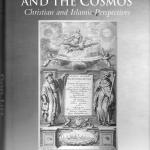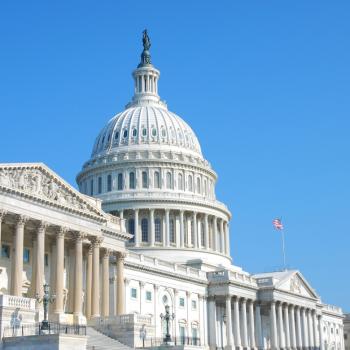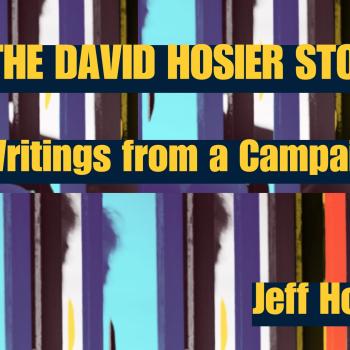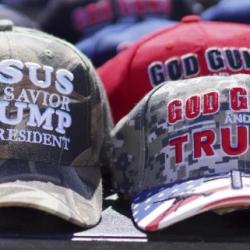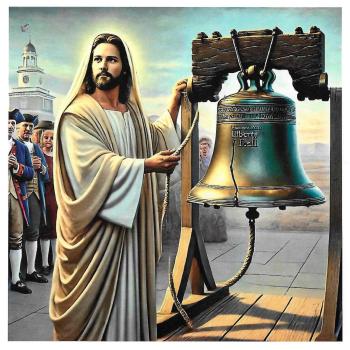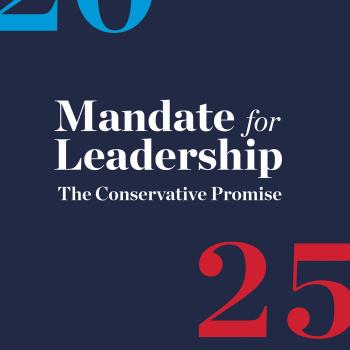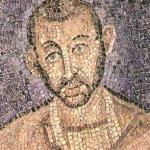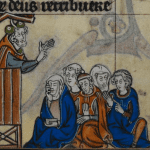Response to Underwood on Christian Nationalism
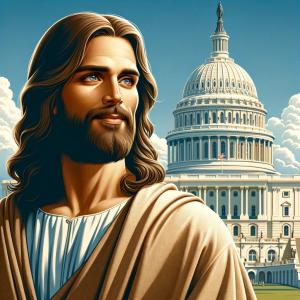
My response to Underwood? I’m innocent. False accusation. It gets worse. This kind of fighting between Christians aids and abets the MAGA-Machavelian wing of the Republican Party.
In his A Public Witness article, “Aiding and Abetting Christian Nationalism,” Beau Underwood criticizes me for denying the existence of Christian Nationalism. And, by denying its existence, he says that I’m guilty of aiding and abetting this extremist ideology.
Along with Bryan Kaylor, Underwood has just authored, Baptizing America: How Mainline Protestants Helped Build Christian Nationalism. The new book will launch on June 4, 2024. I look forward to reading it. In the meantime, I’d like to offer a brief response to Underwood’s critique.
Does American Christian Nationalism (CN) exist?
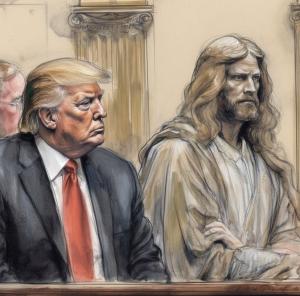 In this Patheos series, I’ve been analyzing the phenomenon of ressentiment in Russia, France, and the United States. Ressentiment – the cultural malaise characterized by anxiety manifesting itself as resentment – is a power generator. Donald Trump has pressed the otherwise chaotic energy of ressentiment into the service of the MAGA-Machiavellian wing of the Republican Party. Herein lies the existential threat to American democracy and the rule of law.
In this Patheos series, I’ve been analyzing the phenomenon of ressentiment in Russia, France, and the United States. Ressentiment – the cultural malaise characterized by anxiety manifesting itself as resentment – is a power generator. Donald Trump has pressed the otherwise chaotic energy of ressentiment into the service of the MAGA-Machiavellian wing of the Republican Party. Herein lies the existential threat to American democracy and the rule of law.
One of my tasks has been to locate the place American Christian Nationalism (ACN) actually occupies in the drama unfolding before our very eyes. What I have discovered is that anti-ACNers – Christians Against Christian Nationalism or CACN – obnubilate and even distort the picture so that a clear view escapes us.
Here is a direct response to Underwood. Had Mr. Underwood read the Patheos posts on Resentment vs Compassion and Measuring Christian Nationalism, he would have noted how frequently I state flatly that Christian Nationalism exists. Perhaps Underwood did read this. But perhaps he misunderstood me when I also said that ACN itself is not an existential threat. Rather, the existential threat is posed by MAGA-Machiavellian Republicans.
Response to Underwood on the ELCA
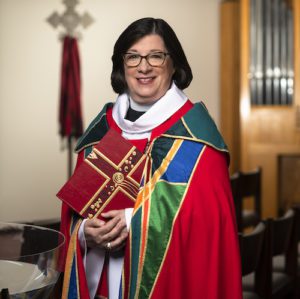
Underwood rightly applauds the ELCA (Evangelical Lutheran Church in America) treatment of ACN, citing fittingly the presiding bishop, Elizabeth Eaton. Underwood cites without comment that the Lutherans identify the presence of the American flag in the sanctuary as evidence of Christian nationalism’s connection to the January 6, 2021, capitol assault. Not only is this vague, but sanctuary flags do not register on the list of traits distinguishing CN. More on that in a moment.
Underwood obviously overlooked my treatment of the ELCA’s We Are Christians Against Christian Nationalism. In “ELCA on Christian Nationalism,” I thanked my ELCA Advocacy colleagues (whose names I do not know) for producing the position statement on CN. The document is prophetic, inspiring, and helpful during this period when so many Americans – Christian nationalists and anti-Christian nationalists alike – feel taunted by anxiety.
The anxiety gripping American culture has to do with a sense of loss. Many of the ol’ guard sense a loss of traditional values and the reliability of our institutions to maintain those values. Many of our progressives sense a threat to recent gains in racial equality, gender equality, reproductive liberty, and the rule of law. The cauldron of anxiety boils with ressentiment.
With this in mind, I believe the ELCA could have done better in two ways. First, the ELCA could have taken a pastoral tone to address directly the underlying anxiety turning into resentment that afflicts American culture in 2024. Second, the ELCA could have distinguished much more sharply between ideological ACNers and the amorphous cloud of floating religious and political tropes. To connect an American flag in a church sanctuary with the January 6, 2021, insurrection is as ludicrous as it is insulting.
Response to Underwood on Goliath
In his article, “Aiding and Abetting Christian Nationalism,” Underwood describes CN as an ideology. This is fitting, I think. To sponsor an ideology takes persons who articulate doctrines that attempt to persuade. Who are those persons? I have sought to find out. Without knowing a person or persons who tout an ideology, we must rely solely on the critics of that ideology. CACNers are ready and willing to tell us what the CN ideology is.

The Goliath on the battlefield is the army of anti-ACNers, most of whom wear the insignia of Christians Against Christian Nationalism. The CN ideology we have come to know is largely written by the CACNers.
Did I find any authentic CN ideologues? Yes, I did. And I quoted them frequently in the series, Measuring Christian Nationalism. And I tried to match what actual CNers say with what CACNers say about them. This turned out to be revealing. What it revealed to me is that progressive Christians are prejudiced against evangelicals. CACNers too often paint evangelicalism with the colors of CN.
Beware! “Christian Nationalism” may be a cryptonym for “Evangelicalism.”
I do not pin this on Underwood himself. In fact, Underwood may be willing to criticize mainline Christianity instead of evangelicalism. His co-authored book might help clarify this.
Measuring Christian Nationalism
To measure CN, I borrowed six criteria for CN from the social scientific work of Andrew Whitehead and Samuel Perry, cited by Pamela Cooper-White and others. This list provides us with six traits that identify a White American Christian Nationalist (Cooper-White, 2021, pp. 13-14) (Whitehead & Perry, 2022, p. 71). Then I added two more: gender and race. With these eight criteria, I compared some primary sources belonging to Christian nationalists themselves in light of secondary sources, mostly by anti-ACNers.
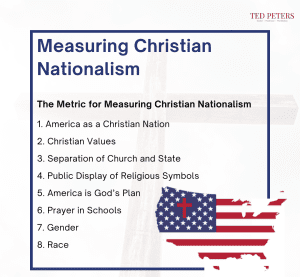
Underwood chastised me for dubbing Whithead and Perry as secular secondary sources. Why object? Because Whitehead and Perry are devout Christians, says Underwood. Underwood rightly noticed that I dubbed their work “secular” because of their reliance on social scientific data rather than strictly on religious opinion. In response to Underwood, it matters little to me whether we think of these worthy scholars as Christian or secular.
One of my key findings is that those who self-identify as CN ideologues fit only loosely with the metric. For example, instead of declaring the United States to be an exclusively Christian nation, CNers are more likely to defend the Constitution’s non-establishment clause on behalf of religious liberty. So also are CACNers, curiously. In short, the metrics – Declaring the U.S. to be a Christian nation plus separation of church and state – do not discriminate sharply between CN and anti-CN.
Conclusion
The problem with this loose measurement is that it permits anti-evangelicals to castigate evangelicals by accusing them of being Christian nationalists.
This intra-Christian fighting draws attention away from confronting the real existential problem America faces, namely, the threat of a tyrannous autocracy posed by the MAGA-Moscow army within the Republican Party. If Donald Trump can keep Christians clawing at each other’s throats, he can watch the blood spill while walking away with many of our votes.
Or, to say it another way, as long as Christians keep blaming each other and stoking the flames of ressentiment, we will be aiding and abetting the Republican Party.
Patheos PT 3241 Response to Underwood on Christian Nationalism
PT 3200 Christian Nationalism Resources
PT 3201. Resentment vs Compassion. Part 1: From Resentment to Ressentiment
PT 3230 Measuring Christian Nationalism, Part 0
PT 3239 ELCA on Christian Nationalism
▓
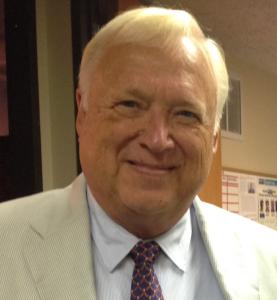
For Patheos, Ted Peters posts articles and notices in the field of Public Theology. He is a pastor in the Evangelical Lutheran Church in America and emeritus professor at Pacific Lutheran Theological Seminary and the Graduate Theological Union. His single volume systematic theology, God—The World’s Future, is now in the 3rd edition. He has also authored God as Trinity plus Sin: Radical Evil in Soul and Society as well as Sin Boldly: Justifying Faith for Fragile and Broken Souls. He recently published. The Voice of Public Theology, with ATF Press. See his website: TedsTimelyTake.com and blog site, https://www.patheos.com/blogs/publictheology/ .
▓
References
Alberta, T. (2023). The Kingdom, the Power, and the Glory: American Evangelicals in an Age of Extremism. New York: Harper.
Butler, A. (2021). White Evangelical Racism. Chapel Hill NC: The University of North Carolina Press.
Cooper-White, P. (2021). The Psychology of Christian Nationalism: Why People Are Drawn In and How to Talk Across the Divide. Minneapolis MN: Fortress Press.
Denker, A. (2022). Red State Christians: :Understanding the Voters Who Elected Donald Trump. Minneapolis MN: Fortress.
DuMez, K. K. (2020). Jesus and John Wayne: How White Evangelicals Corrupted a Faith and Fractured a Nation. New York: Norton.
Hendrickson, O. (2023). Christians Against Christianity: How Right Wing Evangelicals are Destroying our Nation and our Faith. Boston: Beacon.
Kaylor, B., & Underwood, B. (2024). Baptizing America: How Mainline Protestants Helped Build Christian Nationalism. Nashville TN: Chalice Press.
McIntosh, S. (2021). Memoirs of a Black Christian Nationalist: Seeds of Liberation. New York: Merill Publishing.
Peters, T. (2023). The Voice of Public Theology. Adelaide: ATF.
Whitehead, A., & Perry, S. (2022). Taking Back America for God: Christian Nationalism in the United States (2nd ed.). Oxford: Oxford University Press.
Wolfe, S. (2023). The Case for Christian Nationalism. Moscow ID: Canon Press.


